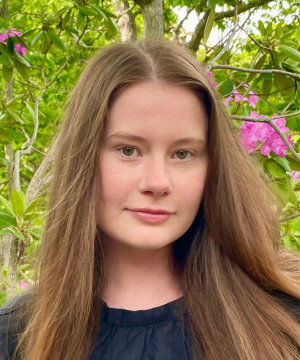If an artist uses an AI tool to help them design artwork, who owns it? As both U.S. and Chinese AI tools grow ever-more sophisticated, courtrooms in both countries are left to decide legal boundaries on intellectual property issues. However, with AI’s rapid development and an increasing focus on data security, blind spots in AI policy will continue to loom over not only artists and content creators but the future of U.S.-China tech relations. How will differing approaches to AI regulation in the United States and China shape both ordinary users and the future of AI?
In an interview recorded on August 15, 2024, Johanna Costigan joins the National Committee to discuss AI policy divergence and cooperation opportunities in the United States and China.

Johanna Costigan
Johanna Costigan is a writer, editor, and researcher focused on China’s technology development and regulation. She has written for outlets including the Los Angeles Review of Books China Channel, Foreign Policy, China Books Review, Rest of World, Project Syndicate, ChinaFile, Nikkei Asia, The Diplomat, and others. She is a regular contributor to Forbes and writes a newsletter on science, technology, and history in China called The Long Game. She has worked on writing and editing projects for the United Nations, Trivium China, the Asia Society Policy Institute, the National Committee on US-China Relations, DigiChina, the Berggruen Institute, and others.
Johanna has an MsC in contemporary Chinese studies from the University of Oxford, where her dissertation focused on social media discourse of state-sponsored depictions of China’s role in World War II (The War of Resistance Against Japanese Aggression). She completed the Inter-University Program at Tsinghua University in Beijing and studied abroad at Qingdao University. At Bard College, she double majored in East Asian studies with a focus on Chinese language and literature and written arts.